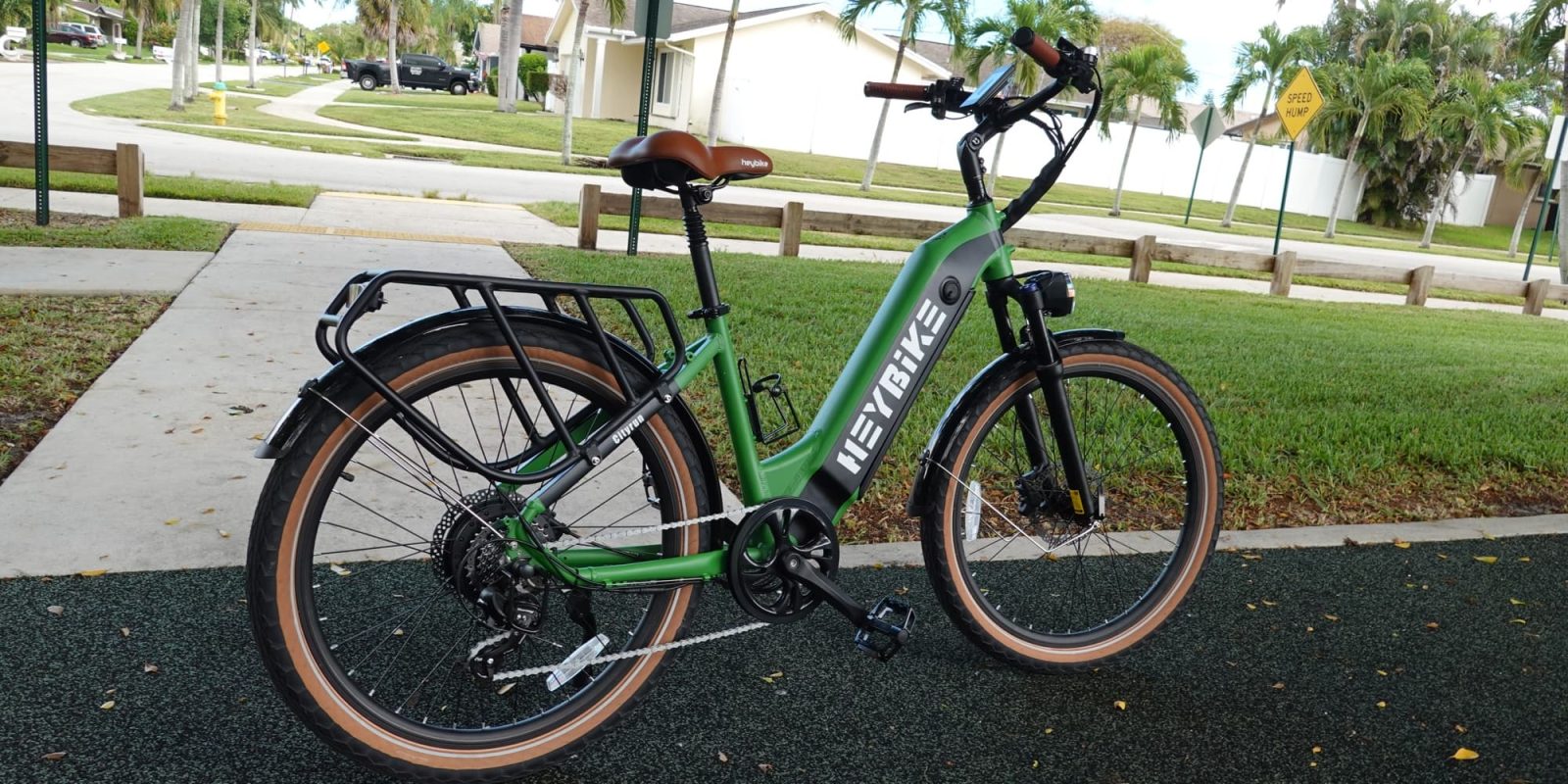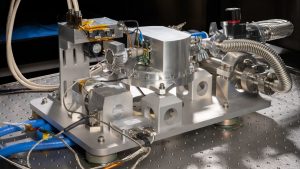HeyBike Cityrun review: A decent urban e-bike that desperately wants to compete on price

HeyBike has built a name for itself over the last year or two with a growing number of low-cost electric bikes. And while the brand can’t hope to compete on reputation with the US market’s major players, it sure can compete on price. Meet the electric bike.
The post HeyBike Cityrun review: A decent urban e-bike that desperately wants to compete on price appeared first on Electrek.
HeyBike has built a name for itself over the last year or two with a growing number of low-cost electric bikes. And while the brand can’t hope to compete on reputation with the US market’s major players, it sure can compete on price. Meet the $1,299 HeyBike Cityrun electric bike.
You may be surprised by just what you get from the HeyBike Cityrun.
It doesn’t come with the name recognition of other famous city e-bikes, but it has some pretty darn nice features for the price.
Components like hydraulic disc brakes, turn signals, hydraulic suspension, and a sturdy rear rack add value to the bike by offering features normally reserved for higher-dollar e-bikes or held back as add-on accessories by other brands.
Take a look at my video review below to get an up-close look at my test-riding experience on the HeyBike Cityrun. Then keep scrolling for my complete writeup.
HeyBike Cityrun video review
HeyBike Cityrun tech specs
- Motor: 500W geared rear hub motor
- Top speed: 20 mph (32 km/h)
- Range: 30-55 miles (48-88 km)
- Battery: 48V 15Ah (720 Wh)
- Weight: 62 lb (28 kg)
- Weight capacity: 350 lb. (159 kg)
- Tires: 26 x 2.5?
- Brakes: 180 mm rotor disc brakes
- Extras: LCD display, LED lighting with automatic headlight and turn signals, strong rear rack, Shimano 7-speed drivetrain, included fenders, app compatibility
- Price: $1,299 on Amazon or also $1,299 on HeyBike’s site
Can’t complain with the value!
Compared to some other major city-inspired electric bikes out there, the HeyBike Cityrun has a lot to offer.
Many of the components on the bike are a cut above what I’d except at this price range.
It’s not strange to see suspension on a $1,299 e-bike, but the bike’s decent hydraulic suspension fork is a bit of a surprise when many other brands use cheaper spring forks.
Disc brakes are pretty much standard on almost all e-bikes these days outside of a few lightweight exceptions, but you’ll usually see mechanical disc brakes at this price point. The Cityrun ups the ante with hydraulic disc brakes that provide higher stopping power with less hand fatigue.
They’re also a maintenance boon, in the sense that you don’t really have to do any maintenance on them. Regular mechanical disc brakes will eventually need adjustments as the cables stretch over time, but the hydraulic fluid in juice brakes like these keeps them perfectly tuned until you’ve finally worn down the brake pads.
The commuter trifecta of LED lighting (with automatic headlight), included fenders, and a robust rear rack (with 120 lb. or 54 kg weight rating) are great to see, especially since many companies hold back racks and fenders behind a paywall (and some don’t even include lights!). But the HeyBike Cityrun adds a fourth member to my usual commuter trifecta, including a horn as well.
Technically there’s a fifth member too if you count the turn signals, though I tend to think turn signals on e-bikes are a bit of a gimmick since they are usually so close together that drivers and other cyclists often don’t realize they are turn signals. I still use hand signals, which are much clearer.
One other note about the horn: It’s kind of nice to have it, but I don’t like that it completely replaced a bell. I think it is still important to have a bike bell on e-bikes because pedestrians are fairly well trained to recognize a bike bell’s signature sound. An electric bike horn is foreign to most people, but everyone knows the “ding ding” of a bike bell means get out of the way if you don’t want to take a handlebar to the kidney.
Chargers are often an overlooked component on many e-bikes since we take for granted that they all come with any old charger. But the HeyBike Cityrun includes a higher-power 4A charger that will reduce charge times to around four hours, which is faster than most e-bikes.
The decently large 48V 15Ah battery offers 720 Wh of capacity, which should get you around 30 miles (48 km) or so of throttle-only riding if you’re moving quickly, or a bit more if you’re throttling around at less than the bike’s 20 mph (32 km/h) top speed.
They claim a 55-mile (89 km) range, which may be possible on the lightest pedal assist level, but most people aren’t going to keep the bike in a low enough power level to find out.
The 500W rear motor strikes a nice balance between power and efficiency. It’s got decent pickup, but it’s not so powerful that it drains the battery quickly. A good 30+ miles of honest range (and more if you’re riding slower) is respectable.
At 62 lb. (28 kg), this certainly isn’t a lightweight e-bike, though it also supports a healthy 350 lb. (159 kg) payload capacity. But you’re getting lots of nice features that have the unfortunate side effect of adding weight. Heavy parts like the rack, suspension fork, 7-speed transmission, large battery, and decently peppy motor don’t help the e-bike out on the scale, but they do make it a nicer bike to ride.
And you even get some other features that don’t add much weight at all, such as a Bluetooth connection to allow use with the HeyBike app that tracks rides and lets you monitor your bike’s stats.
So while the HeyBike Cityrun isn’t the nicest e-bike out there, its $1,299 price is a surprisingly fair offering for such a well-outfitted electric bike. There are lighter and more powerful options in the market, but the bang-for-your-buck is strong with this offering. I can find faults on the HeyBike Cityrun, but I can’t fault them too hard at this price.
FTC: We use income earning auto affiliate links. More.




